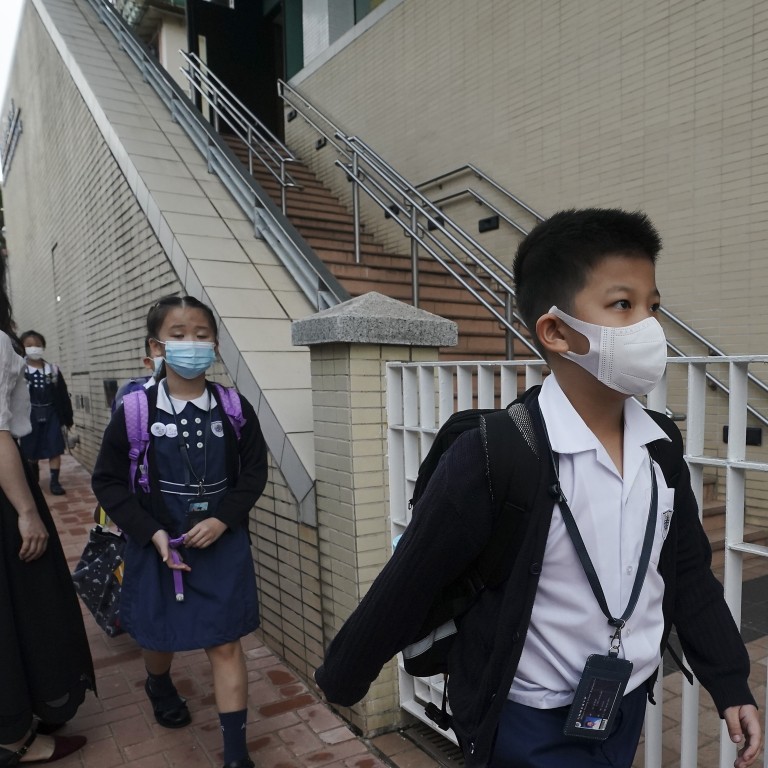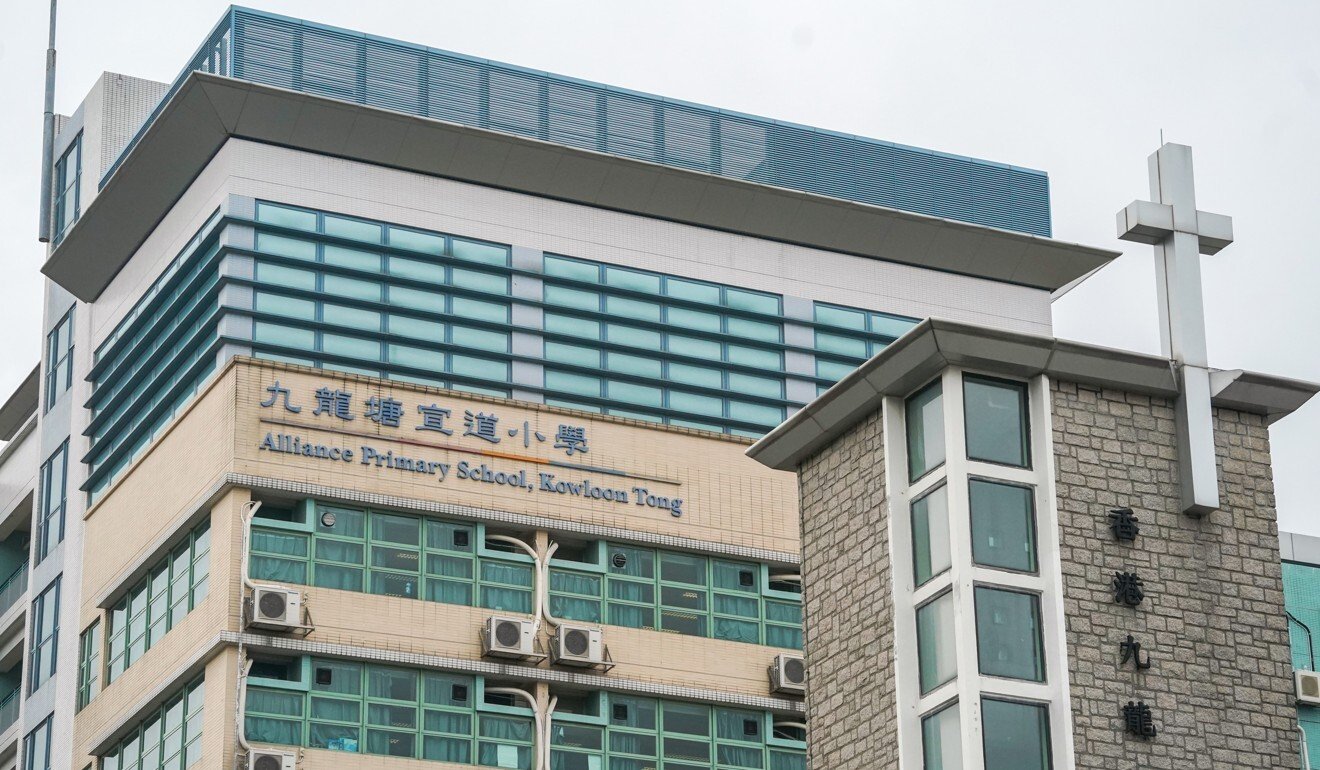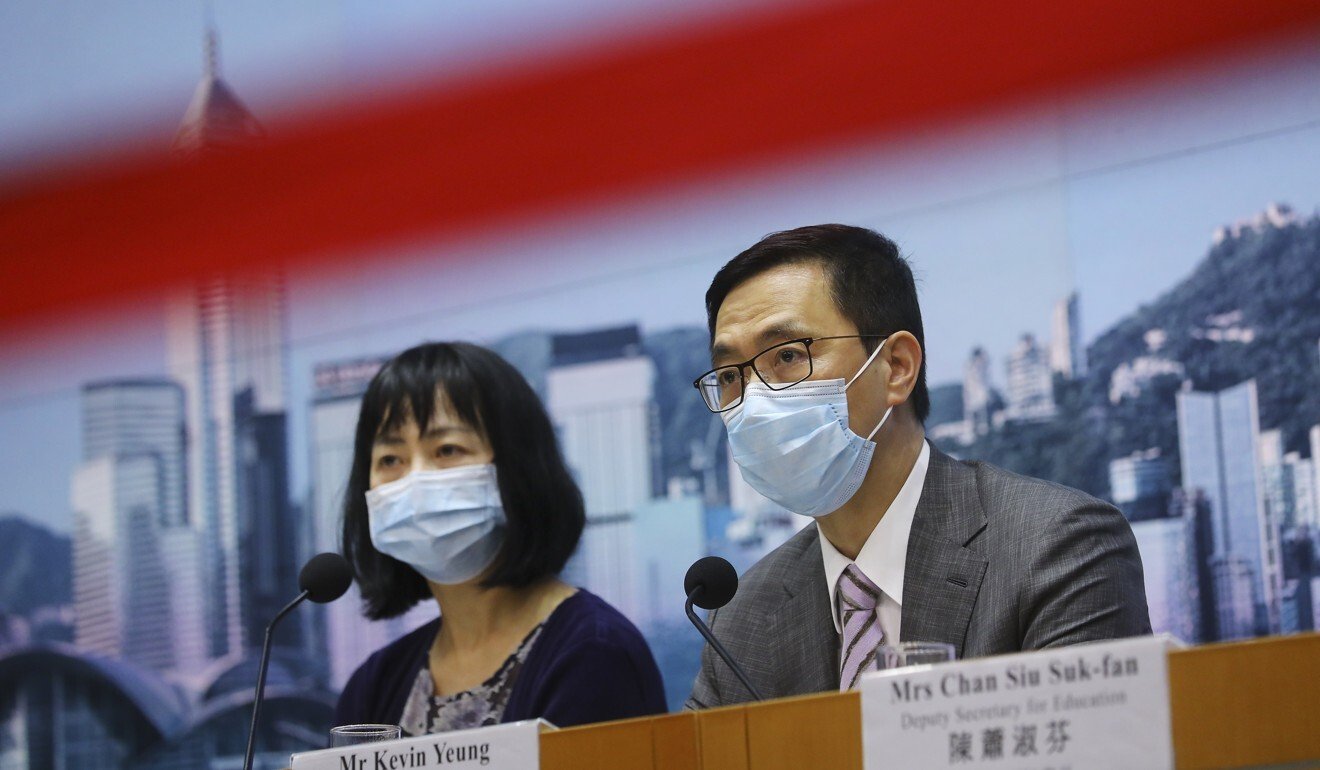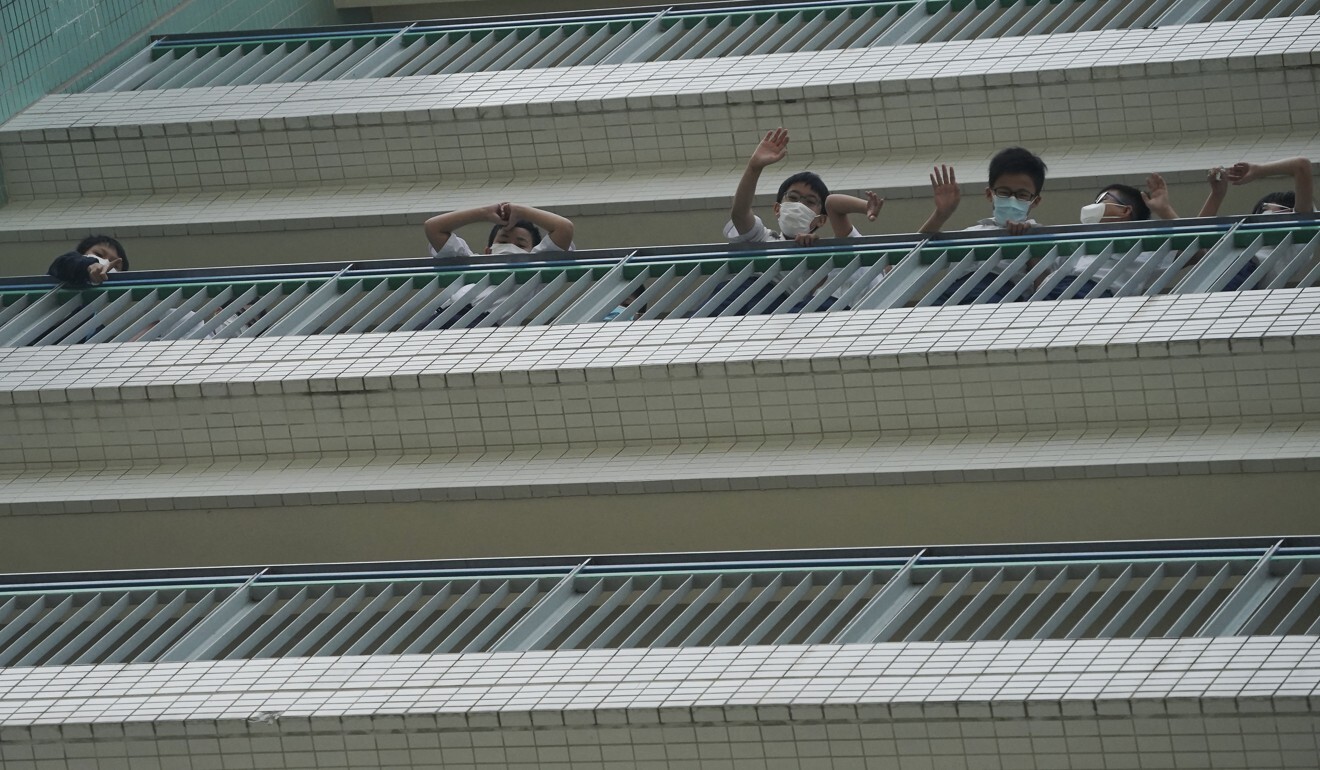
Explainer | What you need to know about the education row in which a Hong Kong teacher was disqualified for discussing independence
- Unprecedented decision to strip teacher of professional qualification over lesson plan has raised concerns of a possible chilling effect
- But education officials have insisted the lesson was inappropriate, and that any talk of independence has no place in classrooms
A teacher from the Alliance Primary School in Kowloon Tong has been stripped of his registration for life by Hong Kong authorities who said he promoted the notion of Hong Kong independence via materials prepared for pupils – something his defenders deny.
It was the first instance of a teacher being disqualified because of classroom content, setting off a protracted debate over what is appropriate content for students, and whether such a harsh punishment could have a chilling effect on educators.
Here’s what you need to know about the incident:
What had the disqualified teacher done, according to the Education Bureau?
The bureau on Monday said that the teacher was deregistered late last month for “serious professional misconduct”. It said a syllabus, teaching materials and a worksheet he designed for a portion of the school’s life education module had promoted a message of Hong Kong independence, in violation of the Basic Law, the city’s mini-constitution.

The bureau also handed out reprimands and warnings against “lax supervision” to the school’s principal, vice-principal and three other teachers who taught the subject.
The worksheet concerned asked Primary Five pupils to answer questions about freedom of speech and Hong Kong independence based on an RTHK documentary on the subject that featured a sound bite from Andy Chan Ho-tin, founder of the banned Hong Kong National Party.
Officials said the lesson plan drafted by the disqualified teacher prescribed 50 minutes of learning about the party and the Societies Ordinance, through which the separatist group was banned in 2018 on national security grounds.
The class would then spend 35 minutes to discuss independence for Taiwan, Tibet and Xinjiang, all highly sensitive regions for Beijing – particularly when the subject of independence is involved.
“The most shocking of all is that … students were asked to raise their hand if they agreed with the [National Party’s] manifesto,” Deputy Secretary for Education Chan Siu Suk-fan said on Tuesday, adding the lesson was “unacceptable to society”.
Hong Kong teacher loses registration for ‘spreading independence message’
What have the critics of the disqualification said, and how have the authorities defended it?
Education sector lawmaker, Ip Kin-yuen, also a vice-president of the Professional Teachers Union, said the deregistration decision was unfair, as teachers often used social events to illustrate certain ideas, including freedom of speech. “The decision of the bureau is extreme, unreasonable and disproportionate,” Ip said, further criticising the bureau for not having met the teacher in person before making the decision.
“The authorities only took into account the lesson plan made by the teacher, without considering the actual teaching scenario or opinions of students,” he added. “The teacher might be aiming at creating a teaching package on freedom of speech, and the teacher might be making use of one of the social incidents as an example to elaborate on the idea of freedom of speech.”
Ip also expressed concerns that the decision would have a chilling effect on teachers.
Hong Kong educators call for training on sensitive subjects, not disqualifications
Leung Yan-wing, an adjunct associate professor at the Education University of Hong Kong, said the teacher’s lesson plan might have been ill-advised as it used only limited sources, but maintained it was far from advocating separatism as education officials had suggested.
“If contentious topics are banned from discussion in future, minors will just keep their thoughts and emotions to themselves,” Leung said. “This is detrimental to students if teachers are not facilitating them to seek to live with truth.”
Education minister Kevin Yeung Yun-hung, however, has defended the decision, saying the teacher in question had been given two opportunities to send in written explanations of their actions. “Whether in person or by writing, it is a way in which the teacher [can] present his or her case.”
Yeung also said the pupils’ opinions, which a source said were not swayed towards independence, were not the main issue.
Is discussion of Hong Kong independence an off-limits issue on campus?
Since the outcry of the teacher’s deregistration, Yeung has made it clear that schools should not discuss independence as part of the curriculum.

“Hong Kong independence does not fit the constitutional order under the Basic Law. A school should not, nor is there a need for it to, discuss [independence] as part of its curriculum,” the education chief said on Tuesday.
If approached by a student initiating a discussion on the topic, teachers, according to Yeung, should explain the fact – enshrined in the Basic Law – that Hong Kong is an inalienable part of China.
Under the Beijing-imposed national security law, enacted in late June, it is illegal to advocate for Hong Kong independence, and Yeung has warned that teachers pushing a separatist stance could face criminal investigations under the law in future.
The alleged misconduct of the primary school teacher in question, whose name had not been made public by the authorities, took place before the law came into force, but authorities said the lesson was still in violation of the Basic Law, the city’s mini-constitution.
Teachers told to steer clear of Hong Kong independence discussions
Former chief executive Leung Chun-ying, now a vice-chairman of the Chinese People’s Political Consultative Conference – China’s top political advisory body – said in an online interview on Wednesday that the teacher would have been in breach of the national security law if the offence took place after June 30.
Under his administration, Leung and his education minister, Eddie Ng Hak-kim, had repeatedly warned that promoting separatism should not be allowed in schools.
In 2017, the then-director of the central government’s liaison office in Hong Kong, Zhang Xiaoming, also called on young people to guard against separatist ideas and learn the correct relationship between the city and the country.

What does the law say regarding the cancellation of a teacher’s registration? Can the teacher make an appeal?
Under the Education Ordinance, the permanent secretary for education may cancel the registration of a teacher if the official deems the teacher “incompetent”, is not a “fit or proper person to teach”, has committed “professional misconduct” or “is prejudicial to the maintenance of good order and discipline in the school [where he or she] teaches”.
The teacher can turn to an appeal board challenging the permanent secretary’s decision within 21 days. Should the appeal fail, he or she can further appeal to the Chief Executive-in-Council. Pending the appeal result, the permanent secretary may permit the teacher to continue teaching if he sees fit.
The appellant can also challenge the decision by the Chief Executive-in-Council in court by filing a judicial review.
Between 2015 and 2019, a total of 30 teachers were struck off or denied registration, mainly because they had been convicted of criminal offences or been found to have problems with their personal conduct.
Lam vows more action after Hong Kong teacher removed for promoting independence
How many complaints have been lodged against teachers since last year’s wave of anti-government protests?
The Education Bureau reported that it has received 247 complaints about alleged professional misconduct of teachers between June last year – when the anti-government unrest began in response to a now-withdrawn extradition bill – and this August.
Investigations have been completed in 204 of the cases. Among those, 73 complaints were ruled unsubstantiated, while 21 teachers were reprimanded and another 12 received warning letters.
The bureau warned that these teachers could have their registration cancelled if they were found to be guilty of misconduct again in the future. Meanwhile, the bureau has also issued written advice to 19 teachers and verbal reminders to another 18.
It has warned that there might be more teachers disqualified in future in the event of serious professional misconduct.

